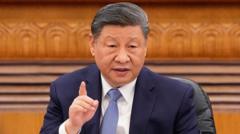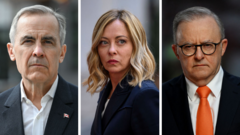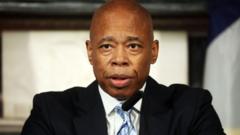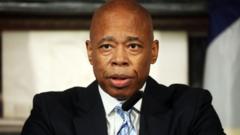Secretary of State Marco Rubio faces skepticism regarding the U.S. approach to Ukraine and NATO following Trump's controversial policies.
Rubio's NATO Visit Fuels Concerns Over Trump's Foreign Policy Shift

Rubio's NATO Visit Fuels Concerns Over Trump's Foreign Policy Shift
Anxiety Grows Among European Leaders as Secretary of State Advocates for New Agenda
In a dramatic diplomatic scene, Secretary of State Marco Rubio visited Brussels on April 3, 2025, to meet with NATO foreign ministers, bringing with him a storm of trepidation regarding President Trump's foreign policy direction. The Secretary's discussions come at a critical juncture, as Europe's trust in the U.S. has faltered dramatically, shifting from a cooperative environment during the Biden administration to rising unease under Trump's leadership.
Rubio's mission was to align the U.S. stance on the ongoing conflict in Ukraine, a subject that has sparked fear among European allies who fear that Trump's administration could prioritize negotiations that favor Russia. Many European leaders worry that Trump’s proposed approach may lead to concessions to Moscow, undermining NATO’s collective strategy against Russian aggression.
As the first senior Trump administration official to attend a NATO meeting this year, Rubio is often perceived as the voice of reason within the administration. He has a reputation for moderating some of Trump's more extreme propositions, providing a much-needed buffer amid unease regarding the president's intentions. Historically, Rubio supported Senate legislation requiring any withdrawal from NATO to receive consent, shielding the alliance from potential unilateral action by Trump, who has previously expressed discomfort with perceived European reliance on the U.S. for security.
However, skepticism looms over whether Rubio can meaningfully navigate these waters while maintaining a semblance of coherence in Trump’s foreign policy, which some argue is driven by an ideology of U.S. economic self-interest and a desire for rapprochement with Russia's Vladimir Putin. As the discourse continues, the ramifications of Trump's policies on NATO's unity and collective security remain a critical concern for Europe and beyond.






















